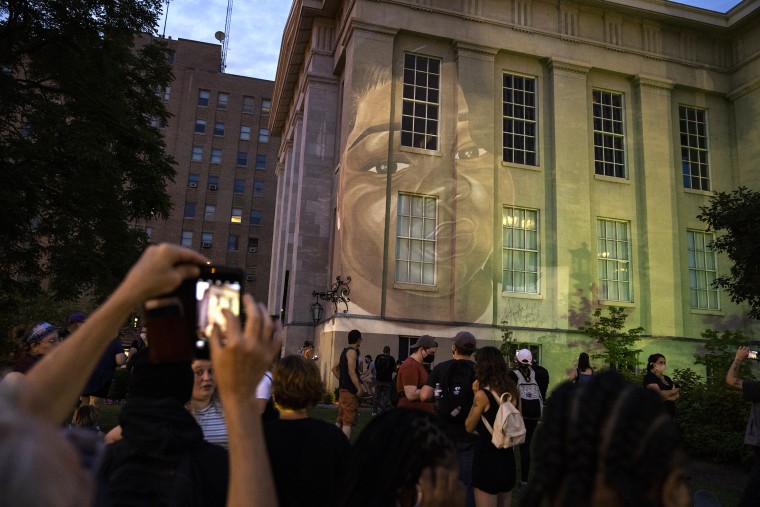Following the unfortunate killings of George Floyd and Ahmaud Arbery, we were screaming from the rooftops about injustice. And rightfully so. The rage and the anger surrounding those cases was well-deserved. But when it came to Breonna Taylor, the rage lasted a few days and then quelled to a mere whisper. It has now been over 100 days since she was killed, and almost nothing has been done.
As Black women, we have endured so much and yet continue to propel the fight for justice, no matter the cost.
Breonna Taylor's case is one of many cases involving the deaths of young, vibrant Black women silenced far too soon. Her case also serves as an example of the erasure of Black women and their humanity. Not too long ago, I came across one of Breonna's mother's prayers during COVID-19. The prayer was one of hope. Hope that her daughter wouldn't be killed working on the front lines as an essential worker. Her mother had no clue that her daughter's death would come at the hands of police officers.
Breonna's case and her mother's prayer illuminate the broader historical struggles of Black women in America. Black women — especially Black mothers — live in constant fear for their children's safety. Will we ever come to a point when that won't be the case? Right now, I am one of many artists and creators helping to illustrate the true experience of being a Black women in America.
And that experience is harrowing. During research for my documentary "(In)Visible Portraits," I went through a plethora of emotions: anger, disappointment, rage and sadness. I felt intense disappointment in myself for not knowing the history of Black women at the age of 32. Then anger in reading slave narratives. Sadness when I fully understood the true history of Black women in America. Rage that we are taught revisionist history in our schools. I found myself not being able to get out of bed, feeling exhausted by the magnitude of my own re-education and my role as a storyteller helping to bring what is often a very silenced narrative to life. Depression loomed, and I literally had to go back into therapy and find ways to transmute these lower vibrating energies into a way that could help me recount, elevate and promote their truth.
As Black women, we have endured so much and yet continue to propel the fight for justice, no matter the cost. What so many Americans don't realize is that the civil rights movement was built on the backs of Black women: Ella Baker, Fannie Lou Hamer, Septima Clark. We don't know these women's stories, and most people don't know their names, because the faces of the movement were typically those of Black men. Today, the fight presses on. Black Lives Matter was founded by three Black women.
During my research, I discovered that the reason Black women have been left out of the narrative is that it doesn't benefit the systems and social constructs currently in place. These systems were imagined and put into place by a white patriarchy. They were set up to marginalize Black folks — Black women suffering even more because of this social hierarchy.
Take the guy we call the father of gynecology, Dr. James Marion Sims. He basically got his fame off the backs of Black women by experimenting on them without anesthesia. The sheer abuse is horrifying — and Sims didn't stop there. He believed that Black people were less intelligent than whites and that we couldn't feel pain. His experimentation on Black infants yielded nothing but death. When we go to gynecologists now, the tools used are the same ones he created by exploiting Black women's bodies and their pain.
These themes of experience, hurt and resilience are the touchstones of my documentary. The film is a love letter to Black women. It is a way of my expressing and holding deep reverence for us by saying, "I see you, I hear you, and you matter."
And the documentary is a re-education for everyone else. It is my hope that sharing the stories of everyday Black women resonates within the Black community and with Americans of every race. And I hope it creates opportunities to shift our educational systems, reimagine our new social constructs and inspire people to walk away with a newfound respect for Black women, who deserve so much reverence and care — now and always.
As told to THINK editor Meredith Bennett-Smith. Edited and condensed for clarity.


